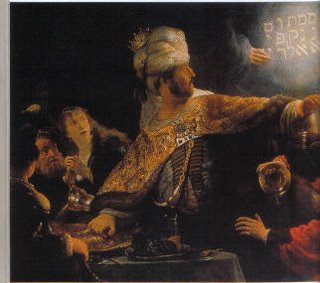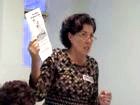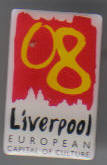Death of right-wing "Mystery Man", Sir Alfred Sherman
 TOGETHER AGAIN "We could never have defeated Socialism if hadn't been for Sir Alfred," declared Lady Thatcher, at book launch for his "Paradoxes of Power", July 28, 2005.
TOGETHER AGAIN "We could never have defeated Socialism if hadn't been for Sir Alfred," declared Lady Thatcher, at book launch for his "Paradoxes of Power", July 28, 2005.I am happy to read of the death, on August 26, of Sir Alfred Sherman, former adviser to Margaret Thatcher and subsequantly to Radovan Karadzic, both of whom are regrettably still alive.
A friend of mine once happened to be standing outside the London School of Economics when Sir Alfred, who was a visiting Fellow, was pausing on the steps with some dignitaries. Who should pass by but Professor Bill Fishman (author of East End Jewish Radicals), who evidently recognising Sherman as a fellow east Londoner chirped out "Wotcha Alf! How's the Communist Party going?"
My friend reckons Sir Alfred visibly cringed.
Born in Hackney in 1919, the son of poor Jewish immigrants, Sherman was educated at Hackney Downs and went on to Chelsea Polytechnic, but he had joined the Communist Party as a teenager, and left college to join the International Brigade fighting in Spain. I once asked another International Brigader from London, the late Charlie Goodman, about the future Sir Alfred's role in the Civil War. He said "We did not see much of him, he was a bit of a mystery man, he wasn't in the frontline".
He wouldn't say any more.
Of course the Brigades like any other army needed back up in the rear, and young Sherman having suffered rickets may not have been all that fit for frontline duty. But we know that besides fighters against the fascists, the Comintern sent political commisars and agents to Spain, whose job was to maintain orthodoxy in the ranks, and report on dissenters, many of whom -whether Spanish or internationals -were despatched by the GPU killing machine.
Whatever the truth, young Alfred Sherman was taken prisoner in Spain and repatriated to Britain in 1938. He worked in a factory until the Second World War, when he served in the British army, in the Middle East. Many International Brigade veterans, Charlie Goodman among them, have testified to the suspicion and discrimination they encountered in the forces, but Sherman was promoted and served in Field Security, and Occupied Enemy Territory Administration.
After the war he became a student at the London School of Economics and was president of the Communist Party's student branch there in 1948, but he was expelled from the CP that year for "Titoist deviationism".
After graduating he became a journalist, working as The Observer correspondant in Belgrade for a time, as did another future champion of Serb nationalism and enemy of the Tito tradition, Nora Beloff, formerly with the Foreign Office. We might note that Observer proprieter Sir David Astor had links with British intelligence, and it was this newspaper which, together with The Economist, found work for Kim Philby when MI6 wanted to place its man in Beirut.
Sherman also managed a stint as an economic adviser to the Israeli government in the 1950s. He reputedly gave advice to Ben Gurion. But although the Israeli Labour Party dominated governments at that time he moved closer to the General Zionists, "free enterprise" advocates who wound up in the right-wing Likud. In Britain, Sherman became a leader writer for the Jewish Chronicle in 1963, going on to work for the Daily Telegraph two years later and eventually becoming its leader writer in 1977.
It was as local government reporter for the Telegraph, proclaiming the virtues of privatisation before his time, that he became a favourite of Sir Keith Joseph, joining the Tory party in 1970, and going on to write speeches for Sir Keith about the need to curb trade unionism, subsidies and taxes, and let the market rule. When Thatcher and Joseph founded the Centre for Policy Studies, in 1974, they found a job as director for Sir Alf.
Having praised the Tory Wandsworth council's pioneering privatisation of public services, and sale of council housing (which led so legend has it to yuppies asking taxi drivers to take them to "south Chelsea" when they wanted to cross the river to their gentrified Battersea homes), Sir Alf was a bit more consistent than others in defending the disgraced Dame Shirley Porter later on.
The Tesco heiress and leader of Westminster city council, having tried her hand selling council-owned cemeteries for peppercorn amounts (the council had to spend far more to buy them back), and shoving poor tenants into asbestos-ridden flats, was brought down by a scandal over keeping council-owned homes empty in marginal wards, till they could be sold to private buyers who were more likely to be Tory voters.
Notwithstanding his denunciation of social engineering aimed at greater equality, Sir Alfred thought this reversal for gerrymandering purposes was fine.
Writing in the Spectator he blamed Harold Wilson's subsidies to the hotel industry (not to be confused with Westminster council's putting homeless families, and public money, into vermin-infested B&Bs). This expansion had brought low-paid hotel and catering workers, many of them undesirable foreign immigrants, into desirable neighborhoods, he said; so Lady Porter was merely trying to reverse the trend.
Sir Alf, the son of impecunious Russian immigrants, had no sympathy for those who had come in since, especially not if they were black, or Arab, or other lesser breeds. Besides writing Margaret Thatcher's speeches he is credited with influencing her notorious remarks in a 1978 TV interview about the British public fearing being "swamped" by immigrants.
Disliked by Establishment Tories who found him crude and offensive, a sort of "thinking man"'s Alf Garnett, Sir Alf was denied a job in the 1979 Tory government despite the use its leader had made of his aggressive anti-immigrant line, and in 1983 he lost his job at the Centre for Policy Studies, getting his knighthood for services rendered instead.
Nothing daunted, Sir Alf moved if anything further to the Right, via the Monday Club and an organisation called Western Goals, which aimed at combatting the "menace of liberalism and communism" in British society, denouncing the work of charities like Oxfam, War on Want and Christian Aid, and defending "European culture" from non-European immigrants, whom it thought should be "resettled" somewhere else.
Sir Alfred's son Gideon became a director of the Western Goals Institute, but it was Sir Alf himself, the one time International Brigade "fighter against fascism" who had the dubious honour of inviting France's Front National leader Jean-Marie Le Pen to address a fringe meeting at the Tory party conference in 1987.
In 1993 a BBC reporter who had been able to visit the Serb nationalist leader Radovan Karadzic's forces in Bosnia was suprised when they boasted to him of the "British Lord" who was giving their leader advice. On enquiry he discovered that the "Lord" was but a Knight, Sir Alf no less. At a meeting in the House of Commons the following year organised by the newly-formed and badly misnamed Committee for Peace in the Balkans, and chaired by Alice Mahon, Labour MP, someone (I forget if it was me) mentioned this connection between a right-wing Tory and the Chetnik ethnic cleansing genius. Who should pop up to confirm it but Sir Alf himself, who declared "I am an adviser to Dr.Radovan Karadzic, and I am proud to be an adviser to Radovan Karadzic!"
He went on to claim that Bosnian Muslims were working to a plan devised by the Kremlin, and informed us that Muslim sharia law, and strict dress code for women, had been imposed in central Bosnia. Having not long returned from Bosnia, where the imams would have had considerable difficulty imposing the chador on the women I met at the trade union offices, serving in the forces , or broadcasting a rock concert on the student radio station, I found the picture he presented quite amusing. What was less amusing at this "peace" gathering were the Labourites (I was told they were from the shadowy Socialist Action) who sneered "in war people get killed" when someone mentioned atrocities, and the sinister figures with Chetnik cross badges who moved around videoing members of the audience, particularly Bosnian refugees. (Apparently the ban on filming in the Palace of Westminster did not apply to them).
Sir Alfred Sherman was not the only boy from Hackney Downs who wound up falling for the charms of ethnic cleansers. Harold Pinter, on the same side as whom I've often been, as well as admiring his work, naievely lent his name to the Committee to defend Slobodan Milosevic. (Incidentally, I was disappointed by Milosevic's death, as I had wanted to see a proper trial, fully covered in the media, at which he ought to have been able to call not just defenders like Sherman but Lords Owen and Hurd as character witnesses).
But in Alfred Sherman's case, if we say that he and Karadzic were birds of a feather, it is hard to say which one's friendship discredited the other. He may have been a bit of a "mystery man" sometimes, but it's clear Sir Alfred Sherman was a thoroughly nasty piece of work.
Labels: Rogues Gallery











